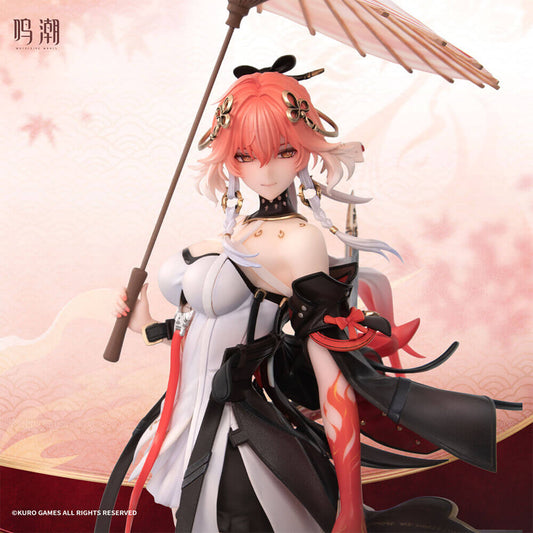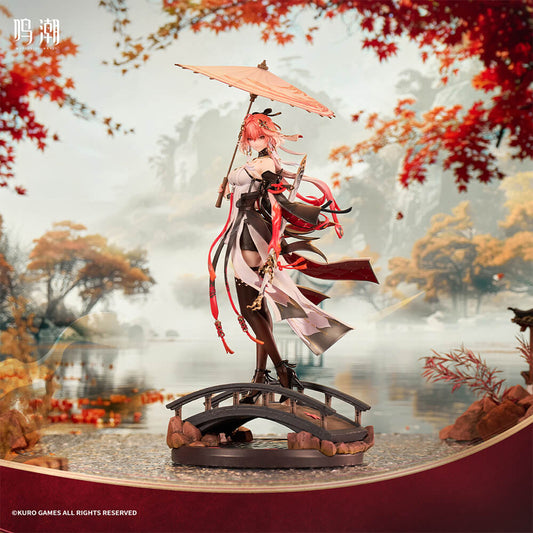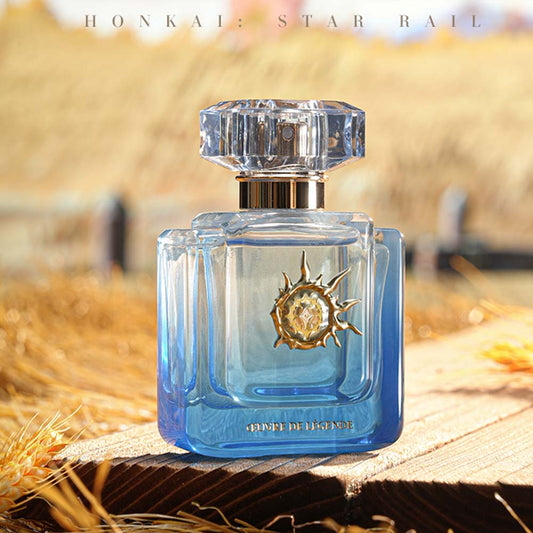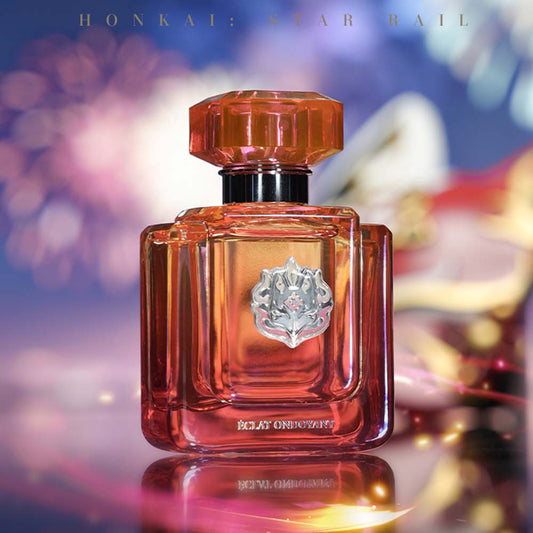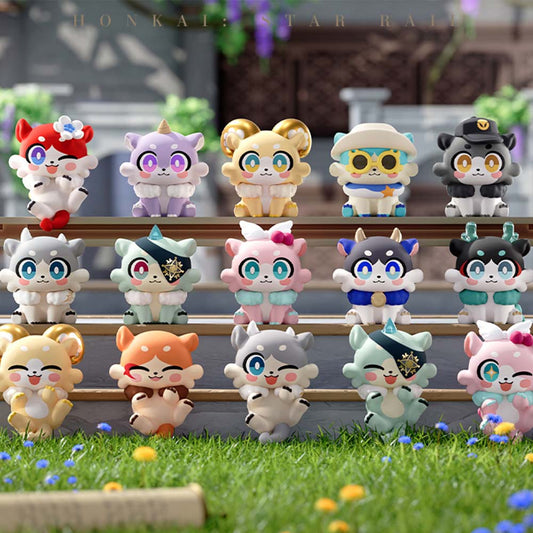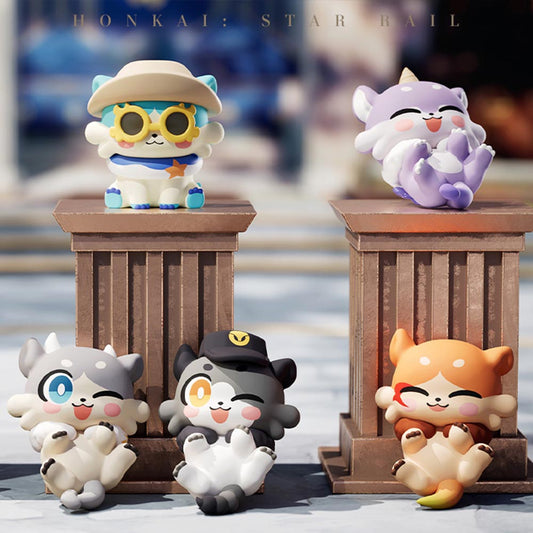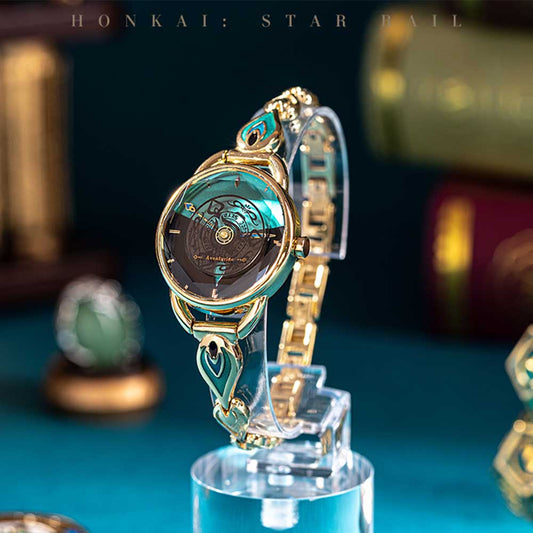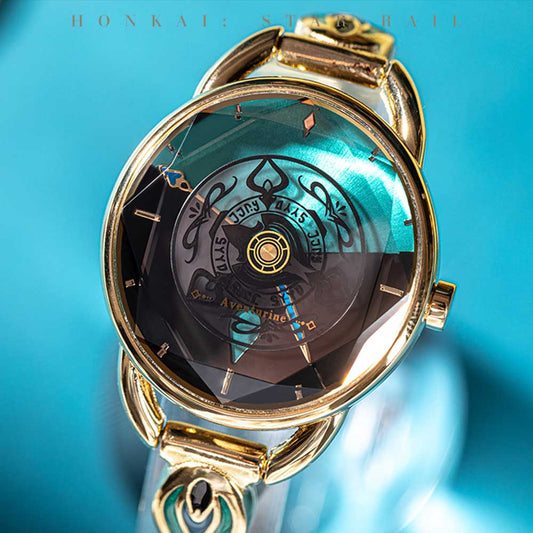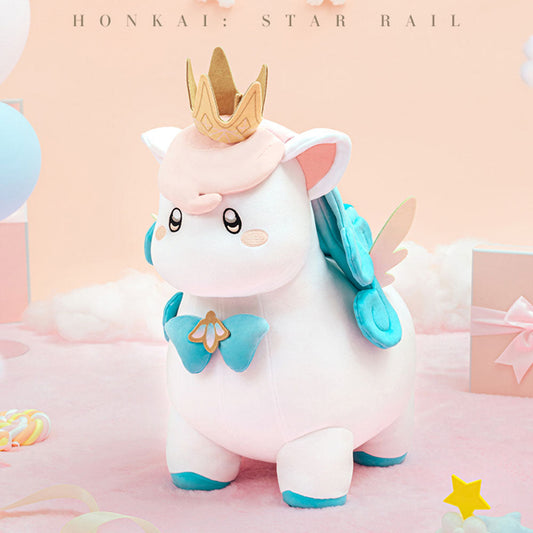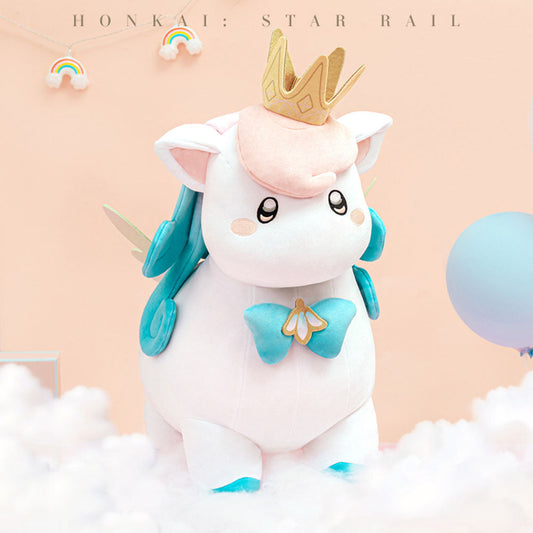How to Build the Most Efficient Team in Reverse: 1999

If you want to build the most efficient team in Reverse: 1999, you must know what each character can do. Top players use damage dealers, supporters, and healers together. This helps them handle every problem. Look at the common roles below:
|
Role |
What They Do |
|---|---|
|
Damage Dealers |
They hit hard and beat enemies quickly. |
|
Supporter |
They help your team with buffs, debuffs, or crowd control. |
|
Second Damage Dealer/Healer |
They assist in tough fights by adding damage or healing your team. |
|
4th Slot Substitute |
Use this spot for special needs, bonding, or hard challenges. |
You will do better if you mix these roles for teamwork. Keep changing your team as you get new characters or face harder battles to build the most efficient team. You can find high-quality figures and collectibles to celebrate your favorite characters at **Bahomu**.
Build the Most Efficient Team
Team Roles
When you want to build the most efficient team, you need to know what each role does. Every team needs a mix of jobs to win tough battles. Here are the main roles you should look for:
-
DPS (Damage Dealer): This character hits the hardest. You want them to take down enemies fast.
-
Buffer: Buffers make your team stronger. They boost attack, defense, or speed.
-
Debuffer: Debuffers weaken the enemy. They lower enemy stats or make them easier to defeat.
-
Healer: Healers keep your team alive. They restore health and sometimes remove bad effects.
-
Tank/Shield: Tanks protect your team. They take hits so others can stay safe.
-
Control: Control characters stop enemies from acting. They can stun, freeze, or silence.
You do not need every role in every fight, but you should cover as many as you can. Some of the best teams use a mix like this:
-
37 + Anjo Nala + Jiu Niangzi + Tooth Fairy: This team lets 37 do huge damage. The others help with buffs and follow-up attacks.
-
37 + Lilya + 6 + Tooth Fairy: Here, 6 helps with debuffs and boosts 37’s power.
-
37 + Regulus + Tooth Fairy + An-an Lee: This team lets 37 take over different roles if needed.
Try different combinations to see what works best for you. When you build the most efficient team, you want every member to have a clear job. To find the best characters and gear, be sure to check out our best-sellers collection.
Discover Reverse: 1999 Figures
Role Flexibility
Sometimes, you do not have the perfect character for every role. That is okay! Many characters can do more than one thing. For example, some damage dealers can also heal a little. Some buffers can also control enemies. You should look at your team and see who can fill more than one spot.
Tip: If you have a character who can buff and heal, you can use another slot for more damage or control.
You can also swap team members based on the fight. If you face a boss that hits hard, bring a tank or extra healer. If you need to finish fast, use more damage dealers. When you build the most efficient team, you want to stay flexible. This helps you win more battles and use your best units.
Leadership & Communication
Great teams do not just have strong characters. They also work well together. You need someone to lead and help everyone know what to do. Good communication makes a big difference. Here is what helps teams do better:
-
A leader who talks clearly and supports the team.
-
Sharing information so everyone knows the plan.
-
Picking a leader who can motivate and organize the group.
Studies show that teams with strong leaders and good communication win more often. Leaders who support and guide the team help everyone do their best. When you build the most efficient team, you should talk about who will lead and how you will share ideas. You can learn more about in-game strategies by checking out our game guides.
Here are some ways teams can talk better:
|
Communication Strategy |
Description |
|---|---|
|
Team Leader Communication |
The leader keeps everyone on track and helps the team work together. |
|
Open and Effective Communication |
Everyone shares what they know to help the team. |
|
Closed Loop Communication (CLC) |
Team members repeat back plans to make sure everyone understands and stays on the same page. |
If you play with friends, talk about your moves and who will use skills first. If you play alone, plan your skill order and rotations. When you build the most efficient team, you will see better results if everyone knows their job and works together. At **Bahomu**, we're committed to providing the best merchandise to celebrate your favorite characters, like the Sonetto figure.
Synergy & Optimization
Skill Synergy
You want your team to work together like a well-oiled machine. Skill synergy means your characters use their abilities to help each other. For example, one character might lower the enemy’s defense, then your damage dealer hits even harder. Try to match skills that boost each other. If you have a healer who can also buff, pair them with a damage dealer who benefits from those buffs. Look at your team’s skills and see how they fit together. Ask yourself, “Does this skill help my other characters do more?” If yes, you are on the right track. You can explore our new arrivals for the latest collectibles.
Tip: Test different skill orders in battle. Sometimes, using a debuff before a big attack makes a huge difference.
Buffs & Debuffs
Buffs make your team stronger. Debuffs make enemies weaker. You should use both to win tough fights. Buffs can raise attack, defense, or speed. Debuffs can lower enemy stats or stop them from using skills. Try to keep buffs active on your team and debuffs on the enemy. Some characters can do both, so use them wisely. Here’s a quick table to help you remember:
|
Type |
What It Does |
Example |
|---|---|---|
|
Buff |
Boosts your team’s power |
Attack Up |
|
Debuff |
Weakens the enemy |
Defense Down |
If you want to build the most efficient team, always think about how buffs and debuffs can change the battle.
Gear & Relics
Gear and relics give your team extra power. You should upgrade gear to make your characters stronger. Relics can add special effects, like more healing or extra damage. Pick gear that matches your character’s role. For example, give your damage dealer gear that boosts attack. Give your healer gear that raises healing. Don’t forget to upgrade your gear and relics often. Strong gear can turn a close fight into an easy win.
Note: Check your gear before every big battle. Sometimes, a small upgrade makes a big difference.
Common Mistakes
Overlapping Roles
You might think having two healers or two buffers makes your team safer. In reality, this often leads to wasted potential. When you stack the same role, you lose out on other important skills. For example, if you use two tanks, your team might survive longer, but you will not deal enough damage to win tough fights. Try to give each character a unique job. This way, everyone brings something special to the table.
Tip: Check your team setup before each battle. Make sure you do not double up on roles unless the fight really needs it.
Ignoring Synergy
Synergy means your team works together. If you ignore this, your team will struggle. Some characters boost each other’s power in big ways. For example, Lucy can deal more damage when paired with characters who lower enemy defenses or add debuffs. Take a look at this table:
|
Character |
Role |
Synergy with Lucy |
|---|---|---|
|
Getian |
Reality Support |
Boosts Reality damage and applies debuffs that enhance Lucy's skills |
|
6 |
Debuffer/Buffer |
Lowers enemy defenses and boosts Lucy's damage output |
|
Isolde |
Debuffer/Support |
Applies debuffs that make enemies more susceptible to Lucy's attacks |
If you skip these combos, your team will not reach its full power. Always look for ways your characters can help each other. Try different pairs and see which ones make your team shine. For a deeper dive into the game’s lore and characters, the official Reverse: 1999 Wiki is an excellent resource.
Poor Adaptability
You will face many different challenges in Reverse: 1999. If you never change your team, you will get stuck. Some fights need more healing, while others need more damage or control. Adapt your team to the enemy. Swap out characters who are not helping. Stay flexible and open to new strategies.
Remember: The best teams change and grow. Keep testing new setups, and you will keep winning.
Team Examples
Balanced Team
You want a team that can handle anything. A balanced team gives you damage, support, and survivability. You can switch roles when you need to. Many top players use these combinations:
|
Team |
Damage Dealer |
Support |
Sustain/Survivability |
4th Slot |
|---|---|---|---|---|
|
1 |
Centurion |
An-an Lee |
Medicine Pocket |
Voyager |
|
2 |
Regulus |
Voyager |
Medicine Pocket |
An-an Lee |
|
3 |
Lilya |
An-an Lee |
Centurion |
Voyager |
|
4 |
Lilya |
Sonetta |
Tennant |
Erick |
|
5 |
Regulus |
Baby Blue |
Dikke |
Erick |
You see how each team covers every role. You get a strong attacker, a supporter, someone to keep your team alive, and a flexible fourth slot. Try mixing these characters if you have them. You will notice your team stays strong in most battles. For more information on the game's mechanics, you can read the IGN review.
Tip: If you feel stuck, swap your fourth slot for a character that fits the challenge. This keeps your team balanced.
Burst Team
Do you want to finish fights fast? Build a burst team. You stack damage dealers and buffers. You hit hard and end battles before enemies can react. You might use Lilya, Regulus, and An-an Lee together. Lilya and Regulus deal huge damage. An-an Lee boosts their attacks. You can add Tooth Fairy or 6 for extra buffs or debuffs.
-
Lilya + Regulus + An-an Lee + Tooth Fairy
-
37 + Lilya + 6 + Tooth Fairy
You focus on quick attacks. You use skills that boost damage. You want to defeat enemies before they get a chance to fight back. When you're ready to find the latest merchandise, check out the Anime & Gaming Characters Figure collection on our site.
Control Team
Sometimes, you need to slow down the enemy. A control team uses stuns, silences, and debuffs. You stop enemies from using their skills. You might pick characters like Tennant, Isolde, or 6. These units can freeze, silence, or lower enemy stats. You add a healer or tank to keep your team safe.
-
Tennant + Isolde + 6 + Medicine Pocket
You control the pace of the battle. You keep enemies locked down. You win by stopping their moves and picking them off one by one.
Note: Control teams work best in tough fights where you need to manage enemy skills. Try them when you face bosses with strong attacks.
Advanced Tips
Team Rotation
You want your team to stay fresh and ready for every fight. Team rotation means you switch out characters based on the battle. Some fights need more healing. Others need more damage or control. You can try different lineups to see what works best. Top players always look at the enemy first. They pick the right heroes for the job.
Tip: Keep a few backup characters leveled up. You never know when you will need a strong healer or a control unit.
Try this simple rotation plan:
-
Check the enemy’s strengths and weaknesses.
-
Swap in characters who counter those strengths.
-
Rotate out anyone who does not fit the fight.
You will notice your team wins more often when you rotate smartly. To learn more about our company's mission and history, you can visit our About Us page.
Content Adaptation
Every mode in Reverse: 1999 asks for something different. You might face a tough boss in a Raid or a tricky puzzle in an Event. You should not stick to one team all the time. Top players know how to adapt. They look at tier lists, but they also think about the battle itself. Sometimes, a lower-tier character shines in a special event.
Here are some things you can do:
-
Understand what makes a character strong in each mode.
-
Try out new team setups for Raids, Events, or Story battles.
-
Mix and match roles for better synergy.
Note: Do not be afraid to use a character just because they are not top tier. Some heroes surprise you in the right spot.
Continuous Improvement
You want your team to get better every day. Keep testing new ideas. Watch how your team performs. If something does not work, change it. Top players always experiment. They try new combos and learn from every battle.
-
Review your team after each fight.
-
Upgrade gear and skills when you can.
-
Ask friends for advice or share your own tips.
Remember: The best teams grow over time. Stay curious, keep learning, and your team will reach new heights.
You now have the tools to build the most efficient team in Reverse: 1999. Focus on these steps:
-
Cover all key roles for balance.
-
Look for skill synergy and strong combos.
-
Upgrade gear and swap members as needed.
-
Test new setups and learn from each battle.
Remember: The best teams grow with you. Try new ideas, stay flexible, and enjoy the journey!
FAQ
How do I know which characters to level up first?
Focus on your main damage dealer and a strong healer. Upgrade a buffer or debuffer next. If you get stuck, check which role your team needs most. You can always swap in new characters as you unlock them.
Can I use low-rarity characters in tough battles?
Yes! Some low-rarity characters have great skills. You can use them for buffs, debuffs, or healing. Try different combos. Sometimes, a lower-rarity hero fits your team better than a rare one.
What should I do if I keep losing a fight?
Try changing your team setup. Add a healer or a tank. Upgrade your gear. Use buffs and debuffs. Watch the enemy’s moves and adjust your strategy. You can win with the right plan!
Do I need to follow tier lists?
Tier lists help, but you do not have to follow them. Your team might work better with different heroes. Test your own combos. Sometimes, your favorite character can surprise you!
How often should I change my team?
You should change your team whenever you face a new challenge. If a fight feels too hard, swap in different roles. Keep your team fresh and ready for anything.
